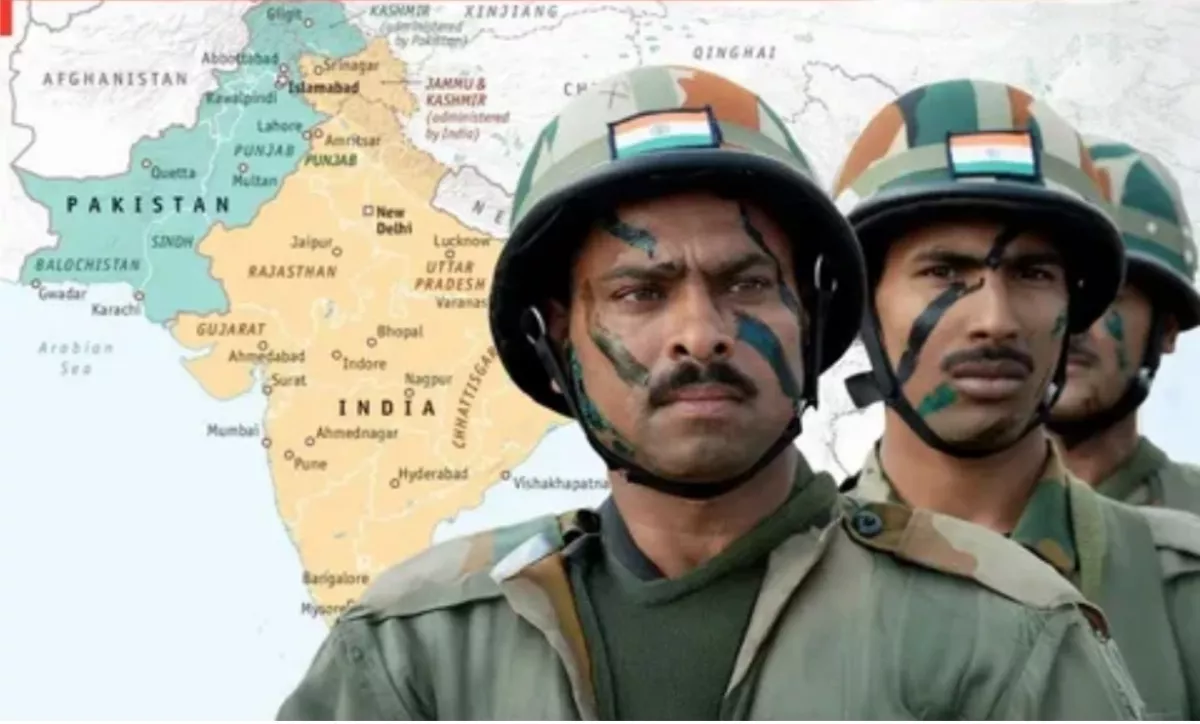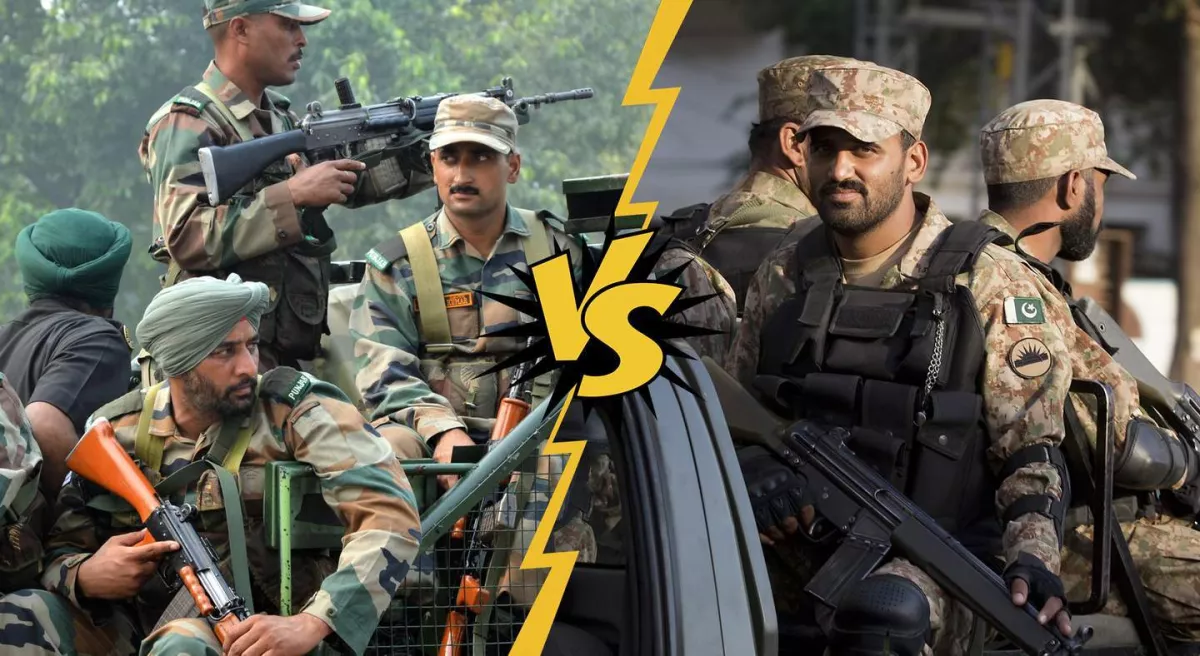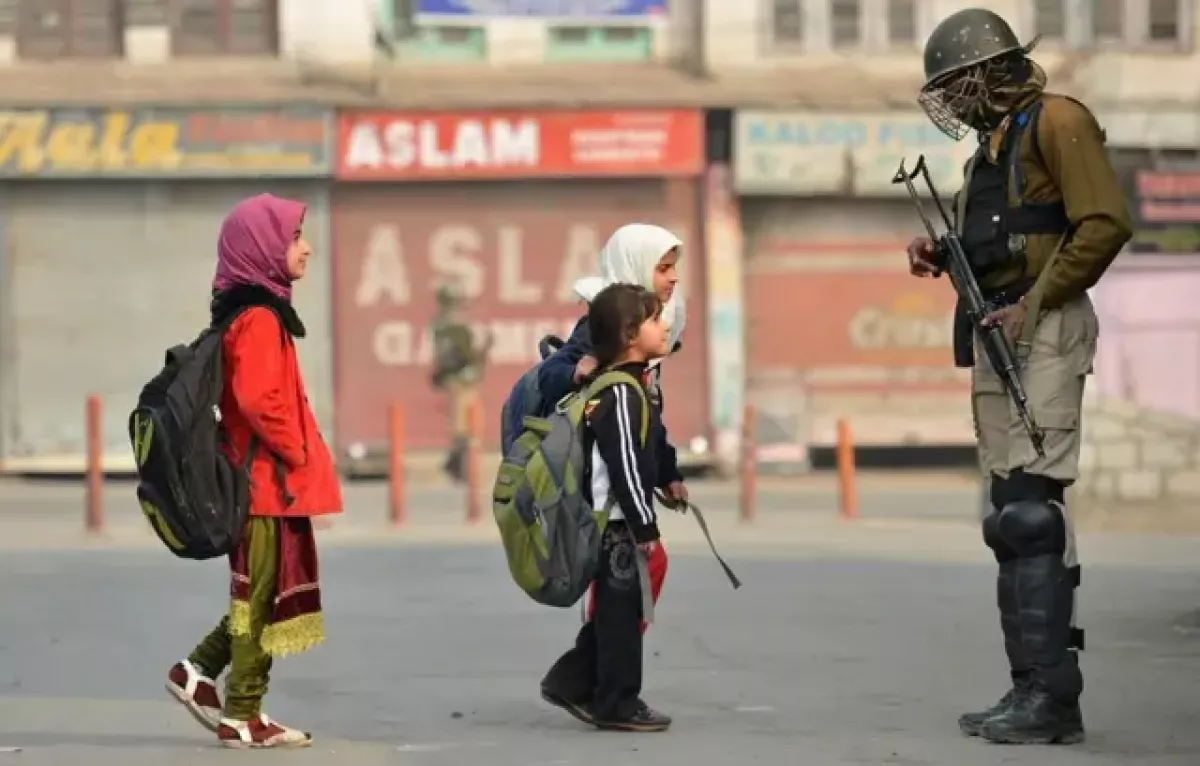Kashmir dispute: India blows up fragile peace Article by Pakistani journalist in TRT World
The Turkish television company TRT World has published an article on the escalation of tensions between India and Pakistan. Caliber.Az offers its audience an adaptation of this piece.
Editor's note: The author of the article, Amir Zia, is a Karachi-based journalist who has worked for several leading Pakistani and international media organisations. He specialises in reporting on security, politics, and economics.
It is a vicious cycle. A major militant attack occurs somewhere in the India-administered Kashmir or in India, and with the snap of a finger, New Delhi blames Pakistan for sponsoring it.
Indian allegations are always followed by some punitive diplomatic and military measures against Islamabad, as the politicians in the teeming country of 1.46 billion people vow to bring perpetrators of the attack and their backers to justice. Pakistan, a country of 250 million people, also plays tough and matches the Indian measures blow-by-blow.
Result: the two South Asian nuclear rivals get dangerously close to a full-blown military conflict until some hasty diplomatic efforts by friendly countries manage to prevent an all-out military confrontation.

This has been the pattern of relations between Pakistan and India for more than two decades now, triggering military standoffs, border skirmishes and even cross-border air strikes.
But since the hardline Hindu nationalist government of India’s Prime Minister Narendra Modi came to power in 2014, the frequency and ferocity of such standoffs have only increased and intensified.
The Modi government not just walked away from bilateral talks in 2016 in the aftermath of a militant attack in Uri, but in an attempt to exert pressure on Pakistan, it strictly ensured that no bilateral cricket series took place between these two cricket-mad countries.
It was the 2008 Mumbai terror attack and subsequent incidents of violence in the India-administered Kashmir that led to the complete suspension of bilateral talks and cricket between the two sides.
On the other hand, Pakistan repeatedly called for talks and to keep politics and the playgrounds separate. But Modi’s India remained adamant, taking a firm position that normal bilateral diplomacy and cricket are not possible with Pakistan until it continues to support what New Delhi alleges as terrorism.
The latest escalation
The April 22 terrorist attack at the picturesque tourist spot of Baisaran Valley, near Pahalgam in the India-administered disputed Himalayan region of Kashmir, has again brought the two countries to the brink of war.
Five gunmen belonging to a little-known militant group, the Resistance Front, had carried out the attack that killed 26 civilians -- 24 Hindu tourists, a Christian and a local Muslim guide.

And like the past, Indian media took just minutes to hold Pakistan responsible for the atrocity without a shred of evidence, as New Delhi announced a series of measures that further stifled relations between the two rival nations.
The Indian measures so far include further downgrading of diplomatic ties, halting trade, and in an unprecedented and highly dangerous move, suspending the World Bank-guaranteed Indus Water Treaty of 1960, which ensured the sharing of six rivers of the Indus basin – three each – between the two countries.
Islamabad has declared that any attempt by India to block the flow of rivers to Pakistan would be considered an “act of war” and would be duly responded.
The world powers, including top officials of the United States, have been in touch with the leaders of both Pakistan and India in a bid to defuse the situation. Russia, China, neighbouring Iran and some of the key Middle Eastern countries all have appealed to the Pakistani and Indian leaders to show restraint and resolve their matters through diplomacy.
From Pulwama to Pahalgam
The standoff between Pakistan and India following the Pahalgam incident is a reminder of February 2019, when both countries came dangerously close to a war following the suicide attack on the vehicles of the Central Reserve Police Force in the Pulwama District of the India-administered Kashmir that killed some 40 security personnel.
At that time, too, India blamed Pakistan-based Jaish-e-Mohammed for the incident, but the suicide attacker was later identified as a local Kashmiri youngster, Adil Ahmad Dar.
The Indian allegations at that time were followed by a reckless air strike across the international border on an uninhabited part of the Balakot region in northern Pakistan. Though New Delhi claimed that it targeted a militant camp, the ground evidence was contrary to the Indian claim.
However, the Pakistan Air Force retaliated within hours of the attack and, in a symbolic gesture, bombed close to the Indian military positions from across the disputed frontier of Kashmir.
In an ensuing dogfight, Pakistan downed at least one Indian aircraft, fulfilling its promise of retaliation if attacked. However, the Pakistan Army asserts that it had shot down two Indian fighter aircraft.
Even if the world somehow manages to get the latest tensions to de-escalate for now, there will always be a fear that a handful of non-state actors plunge South Asia again into a similar crisis by carrying out an attack targeting the Indian security personnel or the civilians.
Weight of history
Islamabad says that instead of blaming Pakistan, India should look inward for the reasons which led to the armed struggle and militancy on the Indian side of Kashmir, where the United Nations had promised to hold a plebiscite in 1948 to allow Kashmiris the choice whether they want to live with Pakistan or India. That promise is yet to be fulfilled.
Kashmir, the only Muslim-majority region in India, has already been the cause of two major (1948 and 1965) wars and a limited conflict on the Kargil heights in 1999. A bloody insurgency has also raged in the region since 1989, killing thousands of people.
India uses excessive force to maintain control over the region. Thousands of Kashmiris are in jail. The Indian army has been repeatedly accused of gross human rights abuses, including torture, summary executions, and rape.

On August 5, 2019, the hardline Hindu nationalist government of Prime Minister Narendra Modi changed the status quo by abolishing Articles 370 and 35-A of the Constitution that gave minimal and symbolic semi-autonomy to the occupied region.
By violating its own Constitutional guarantees, the UN resolutions and bilateral agreements with Pakistan, India made this disputed region part of its union territory against the backdrop a heightened state oppression and a series of regressive measures that included a fresh round of arrests and crackdowns on political workers and the opposition, restrictions on the media and internet.
The Constitutional changes also allowed New Delhi to take measures that would eventually change the demography of Kashmir, raising concerns among the Kashmiri Muslims that they would become a minority on their own land.
International human rights groups acknowledge that the Indian state repression has increased in the India-administered Kashmir following the August 5, 2019, unilateral Constitutional changes.
No way forward
Pakistan says that by destroying the status-quo, India made holding conventional diplomacy and normal relations impossible. The Indians have made even talks impossible. Modi is using coercion and pressure, extracting political benefits from anti-Muslim rhetoric amid domestic elections. While relations with India barely figure in the political debate in Pakistan, in New Delhi the anti-Pakistan agenda is one of the main trump cards in the elections.
Even if diplomats manage to temporarily prevent an escalation in Pahalgam, relations between the two countries will remain tense. Neither government can afford to be the first to back down.








